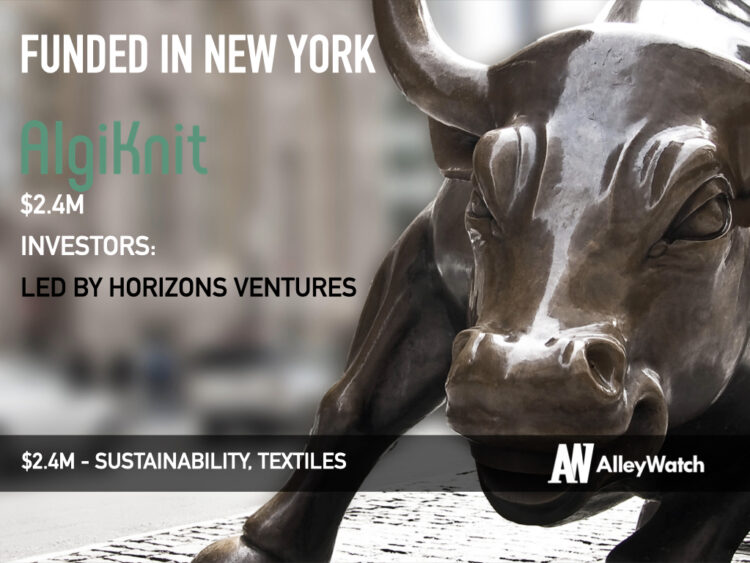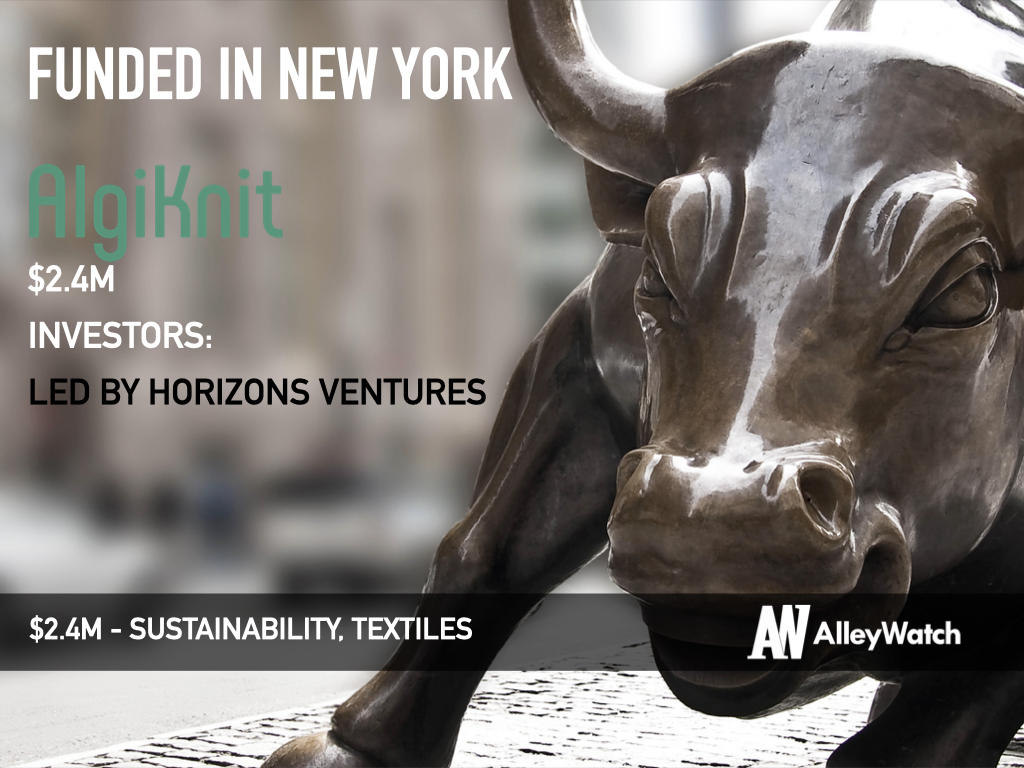As you start your spring cleaning this year, it’s likely that you’ll end up throwing away large amounts of clothing. In fact, the volume of clothing that Americans dispose of annually has doubled in the last twenty years. Only 15% of textiles are presently recycled. AlgiKnit has developed a renewable yarn that’s made from kelp, a plentiful organism that rapidly regenerates. The yarn is extremely durable and compostable. The production process can be applied to an existing factor infrastructure so there isn’t a capital-intensive investment required to switch to using materials with a significantly lower environmental footprint.
AlleyWatch caught up with Cofounder and CTO Aaron Nesser to learn more about the innovative process of turning seaweed into eco-conscious textile materials, the company’s future plans, and latest round of funding, which brings the total funding raised to $4.6M.
Who were your investors and how much did you raise?
Horizons Ventures led our $2.4M Seed round.
Tell us about the product or service that AlgiKnit offers.
AlgiKnit is creating eco-conscious, renewable yarns for the circular economy. We’re developing durable yet rapidly degradable yarns from kelp, one of the most regenerative organisms on the planet. Our material is built for everyone: a functional and accessible resource without environmental harm.
What inspired the start of AlgiKnit?
We were all studying and working in design, and wanted to make products that were more sustainable and that fit into circular, closed-loop systems of production. We realized together that the materials to make these products didn’t yet exist or were not commercially available, so we set out to create our own.
AlgiKnit is unique in the sustainable materials space because of its compatibility with existing systems. We start with biopolymers from a seaweed called kelp, sourced from established seaweed processors. This means our key materials are available today at commercial scale.
Our fiber production process is also drop-in compatible with existing factories. This means that we will not need to build new factories to scale production. Both factors enable us to scale faster and reach economies of scale quickly.
What market does AlgiKnit target and how big is it?
We are targeting the eco-textile industry, which is expected to grow to $110 billion in 2025 and is a quickly growing segment of the $1.4 trillion global textile industry.
What’s your business model?
We keep it simple. We sell fiber and yarn, which can then be turned into fabrics, garments, and other products.
How has COVID-19 impacted the business?
There were some initial hurdles in becoming a partially remote team, but we’ve actually been able to establish new ways of operating.
What was the funding process like?
Without a doubt, there was some adjusting to meeting exclusively over Zoom for everyone involved. One perk was not having to worry about transportation. Overall, however, it felt similar to other rounds that were raised pre-COVID.
What are the biggest challenges that you faced while raising capital?
There was a lot of uncertainty early on in the pandemic that VC deal flow would grind to a halt. The initial uncertainty was a challenge at first. The other big adjustment was optimizing for Zoom-only pitches and Zoom-fatigue in general.
What factors about your business led your investors to write the check?
In general, the belief that our future world will be made from sustainable, bio-degradable, and bio-based materials, and that the time is right for that change. Fashion is a huge market and we’ve never seen such a strong groundswell of support for sustainable fashion as what has been building up over the last 4-5 years.
In general, the belief that our future world will be made from sustainable, bio-degradable, and bio-based materials, and that the time is right for that change. Fashion is a huge market and we’ve never seen such a strong groundswell of support for sustainable fashion as what has been building up over the last 4-5 years.
What are the milestones you plan to achieve in the next six months?
This fundraise is centered around supporting pilot projects, internally and with brands. We need to be able to supply brands with material to create products and to do that we will be increasing our production scale.
What advice can you offer companies in New York that do not have a fresh injection of capital in the bank?
Focus. Focus your time and cash. Take a step back to assess what is essential. When you narrow your focus you can not only move faster, but you can also create more runway.
Where do you see the company going now over the near term?
We will continue to progress on product development and to bump up our scale of production to produce more material..
What’s your favorite outdoor dining restaurant in NYC
King Mother in Ditmas Park, for their awesome collection of natural wines.






